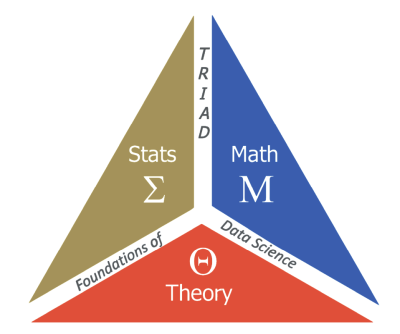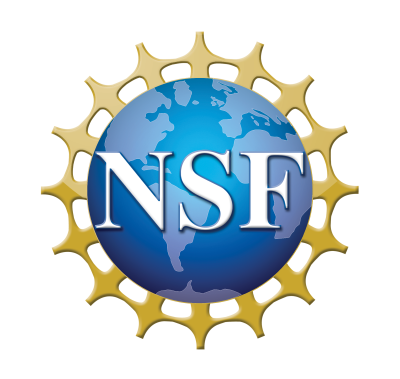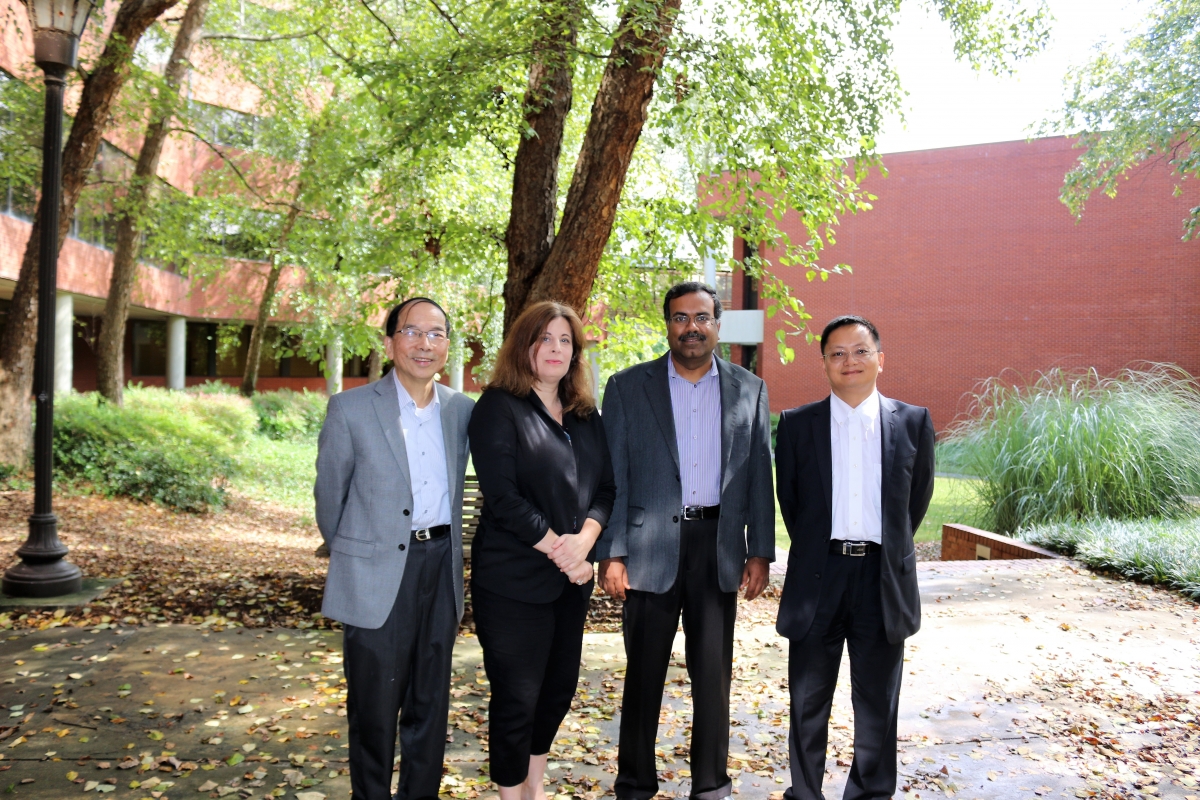Transdisciplinary Research Institute for Advancing Data Science
 TRIAD integrates research and education in mathematical, statistical, and algorithmic foundations for data science. Analysis of massive, dynamic, noisy and complex data arising in virtually every sphere of human activity is a pressing challenge of our times, and an area of great importance for its economic and societal impact. TRIAD is to address the growing challenges in establishing the foundations of data science, much of which lies at the intersection of computer science, statistics, and mathematics. TRIAD's intellectual focus is to design and build transdisciplinary research programs that provide an enabling and cross-fertilizing platform of ideas and stake holders (including theoreticians/scientists from domain sciences and users of technology). TRIAD hosts focused working groups, national and international workshops, and organized innovation labs. Participants include senior, mid-career, and junior faculty members, postdoctoral fellows, graduate and senior undergraduate students, and data science practitioners at large. All TRIAD activities involve interdisciplinary personnel from the three foundational disciplines. TRIAD deploys information technology and communication infrastructure to quickly and efficiently disseminate its research and activities, while the research community at large can easily access and comment/critique TRIAD's choice of research programs and topics. The institute aims to create an intellectual atmosphere that connects theoreticians and practitioners, scientists and engineers, from across the nation and worldwide on a regular basis.
TRIAD integrates research and education in mathematical, statistical, and algorithmic foundations for data science. Analysis of massive, dynamic, noisy and complex data arising in virtually every sphere of human activity is a pressing challenge of our times, and an area of great importance for its economic and societal impact. TRIAD is to address the growing challenges in establishing the foundations of data science, much of which lies at the intersection of computer science, statistics, and mathematics. TRIAD's intellectual focus is to design and build transdisciplinary research programs that provide an enabling and cross-fertilizing platform of ideas and stake holders (including theoreticians/scientists from domain sciences and users of technology). TRIAD hosts focused working groups, national and international workshops, and organized innovation labs. Participants include senior, mid-career, and junior faculty members, postdoctoral fellows, graduate and senior undergraduate students, and data science practitioners at large. All TRIAD activities involve interdisciplinary personnel from the three foundational disciplines. TRIAD deploys information technology and communication infrastructure to quickly and efficiently disseminate its research and activities, while the research community at large can easily access and comment/critique TRIAD's choice of research programs and topics. The institute aims to create an intellectual atmosphere that connects theoreticians and practitioners, scientists and engineers, from across the nation and worldwide on a regular basis.
The executive director of TRIAD is Professor Xiaoming Huo.
About TRIAD

Part of the “TRIPODS” program at NSF, the Transdisciplinary Research Institute for Advancing Data Science (TRIAD) integrates research and education in mathematical, statistical, and algorithmic foundations for data science. It was recently funded by the NSF and locates at Georgia Tech, with participating faculty members from the academic units including the School of Mathematics, the College of Computing, the H. Milton School of Industrial and Systems Engineering, the School of Electrical and Computer Engineering, and many more.







